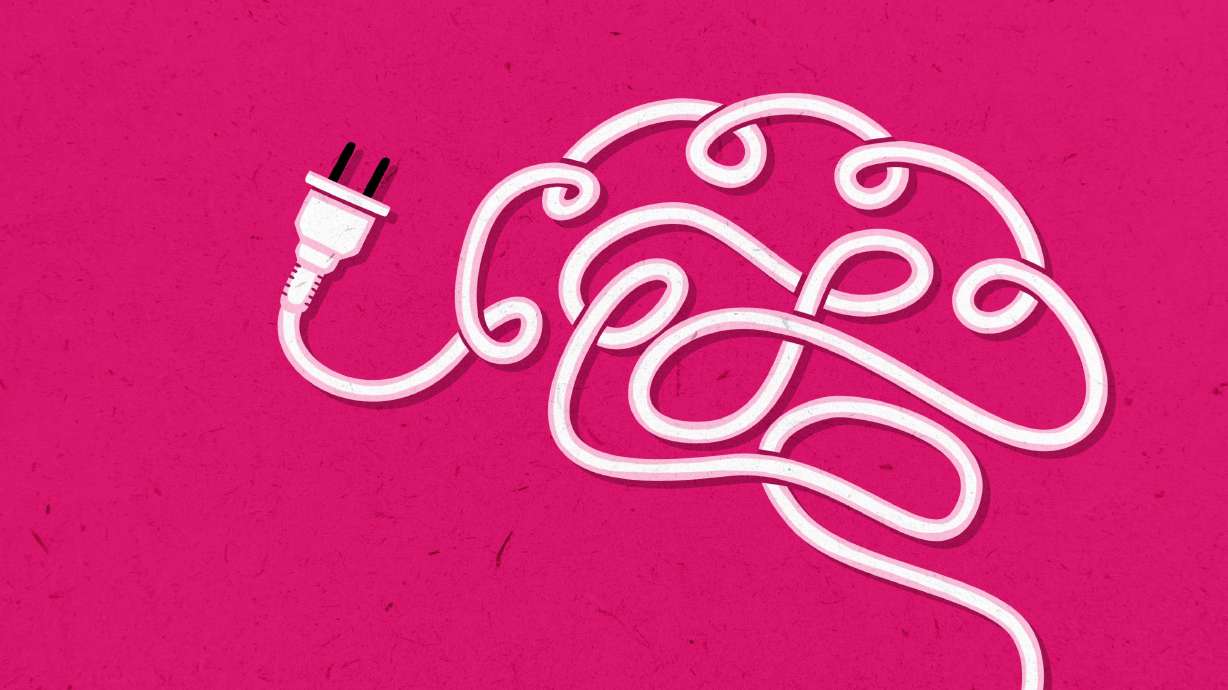Estimated read time: 5-6 minutes
This archived news story is available only for your personal, non-commercial use. Information in the story may be outdated or superseded by additional information. Reading or replaying the story in its archived form does not constitute a republication of the story.
SALT LAKE CITY — I've struggled with one particular maddening thing for as long as I can remember: When I get up to grab or do something, there's a good chance I'll have to go back where I started to remember why I got up in the first place. Life in fits and starts.
My short-term memory, especially for things that feel kind of routine, is less than stellar. So I was pretty stoked to read an article in The New York Times this week called "Now, what was I looking for?"
It turns out that such forgetful lapses are "exasperating," but usually normal, as Dr. Sharon Sha, a Stanford University professor of neurology, told the Times' Caroline Hopkins. Most of the time the short-term memory simply wasn't filed as a long-term memory and thus escaped.
As a July study of short-term memory impairment published in the National Center for Biotechnology Information's StatPearls notes, short-term memory is retained for about 30 seconds and hinges a lot on whether there are distractions and how good one's focus is at the moment you're using that active memory. It works less well when you're talking to someone and eavesdropping on a conversation and trying to remember why you're heading into the other room.
The Times article reported most people can hold onto four or five thoughts or tasks in their working memories at one time. And of note is the fact that some studies say short-term and working memory are different things.
Those short-term bits only go to long-term memory if they're encoded. Otherwise, to complete your short-term memory task, you have to think fast.
"If our brains encoded everything we saw, heard, smelled or felt, we wouldn't have any working memory left for things like walking, talking or listening," Hopkins wrote.
I dived into some memory research to find suggestions for how to improve short-term memory. Some of them are pretty surprising — enough so they're probably now encoded in my long-term memory. And some of what I learned is interesting, but hard to do. Here's what I found:
- A study from Japan published in the journal Nutrients found eating wasabi can improve both long- and short-term memory retention in older adults — which I am. Volunteers took a wasabi tablet or placebo at bedtime for 12 weeks. A Medical Xpress article said they screened out folks with known ailments, memory and mental disorders and those on certain medications or heavy drinkers. They also took cognitive and memory tests before and after. Those who ingested wasabi did better on association tests such as remembering the name that went with the face.
- Harvard Health Publishing says you can use mnemonics to recall information. Those include "images, acronyms, rhymes and easy-to-recall phrases" to make those memories more durable. It recommends "look, snap, connect," which includes visualizing, word association and storytelling to help hang onto details when you learn something new.
- A study in PNAS said that musical rhythm training improves the short-term memory for faces. That training "placed demands on short-term memory, as well as demands on visual perception and selective attention, which are known to facilitate short-term memory."
- Meditation can improve short-term memory. A 2020 study in the journal Psychological Reports found that a single quick meditation session increased visual short-term memory.
- Cut out sugary snacks, per a decade-old study in Neurology titled "Higher glucose levels associated with lower memory and reduced hippocampal microstructure."
- Exercise more. Running on a treadmill for a half-hour improves short-term memory specifically, says a study in Neuroscience Letters.
- Adequate, high-quality sleep is known to improve brain function, including memory retention and short-term memory function. So is staying hydrated.
- Listen to music, but be particular. Research by London Metropolitan University in 2020 found that listening to Mozart improves short-term memory, but listening to Mahler "degrades it." That one was published in Advanced Research in Psychology.
- Cut down on alcohol, which inhibits short-term memory. Even small amounts worsen scores for short-term memory, according to a study in Psychopharmacologia.
- Mild noninvasive brain stimulation improves short-term memory in older adults for a month, Boston University researchers found. Their study was published in Nature Neuroscience. Because that's not really a do-it-yourself thing, though, folks are stuck waiting for a "portable, in-home device that could offer this therapy," as one researcher told CNN would be the ultimate goal.
- A smartphone app called HippoCamera "helps to significantly improve memory recall," according to Neuroscience News, which said it could have an application for helping those who have Alzheimer's disease, among others who struggle with short-term memory. "The app enhances biological memory encoding by boosting attention to daily events and consolidating them more distinctly," the article said. It works by mimicking the jobs of the hippocampus, "constructing and maintaining memories." It reportedly works for everyone, including healthy older adults and those along the spectrum of cognitive decline.
- Finally, if you have periodic short-term memory lapses, don't stress excessively over it. Stress is yet another thing that hampers memory.










